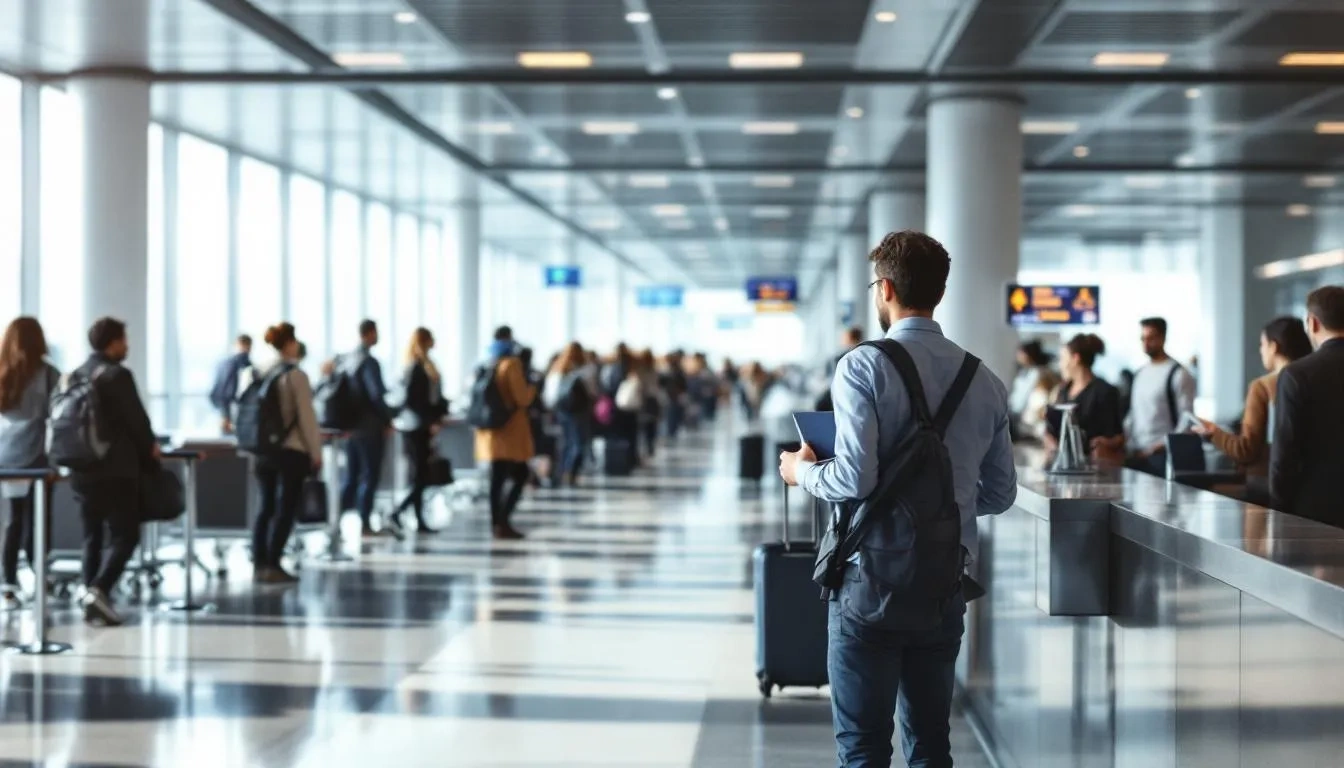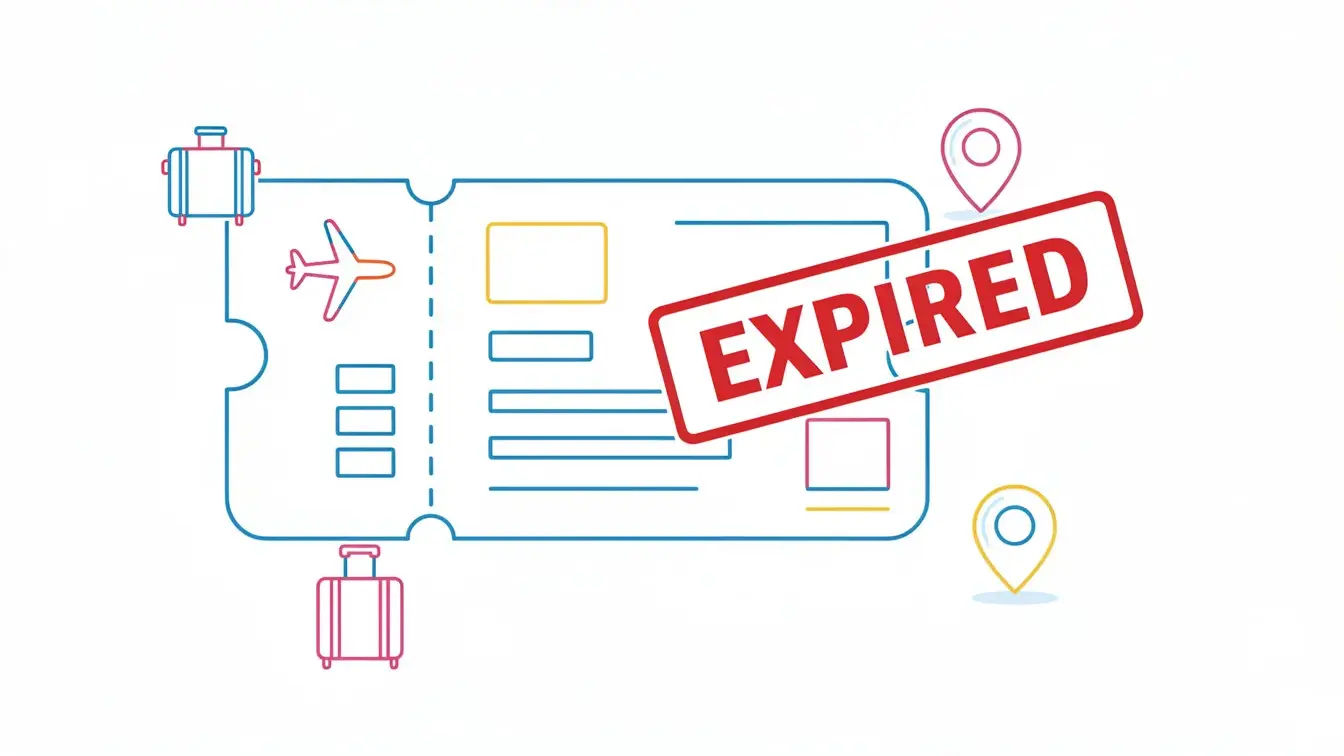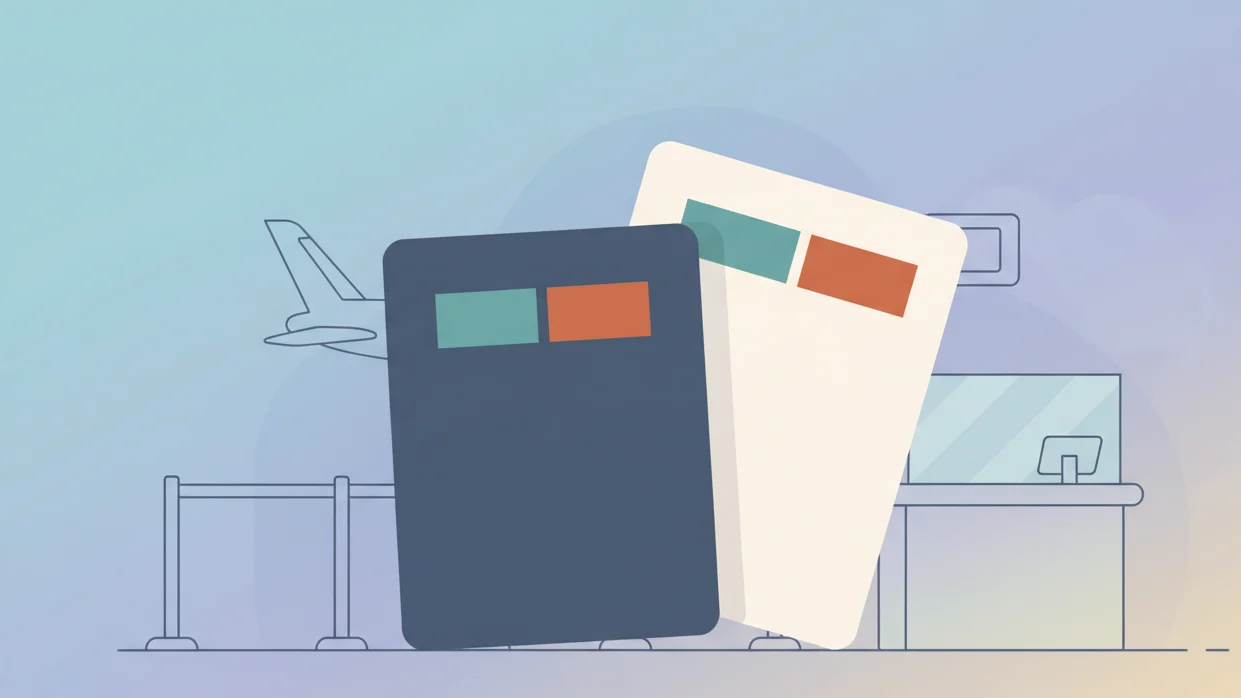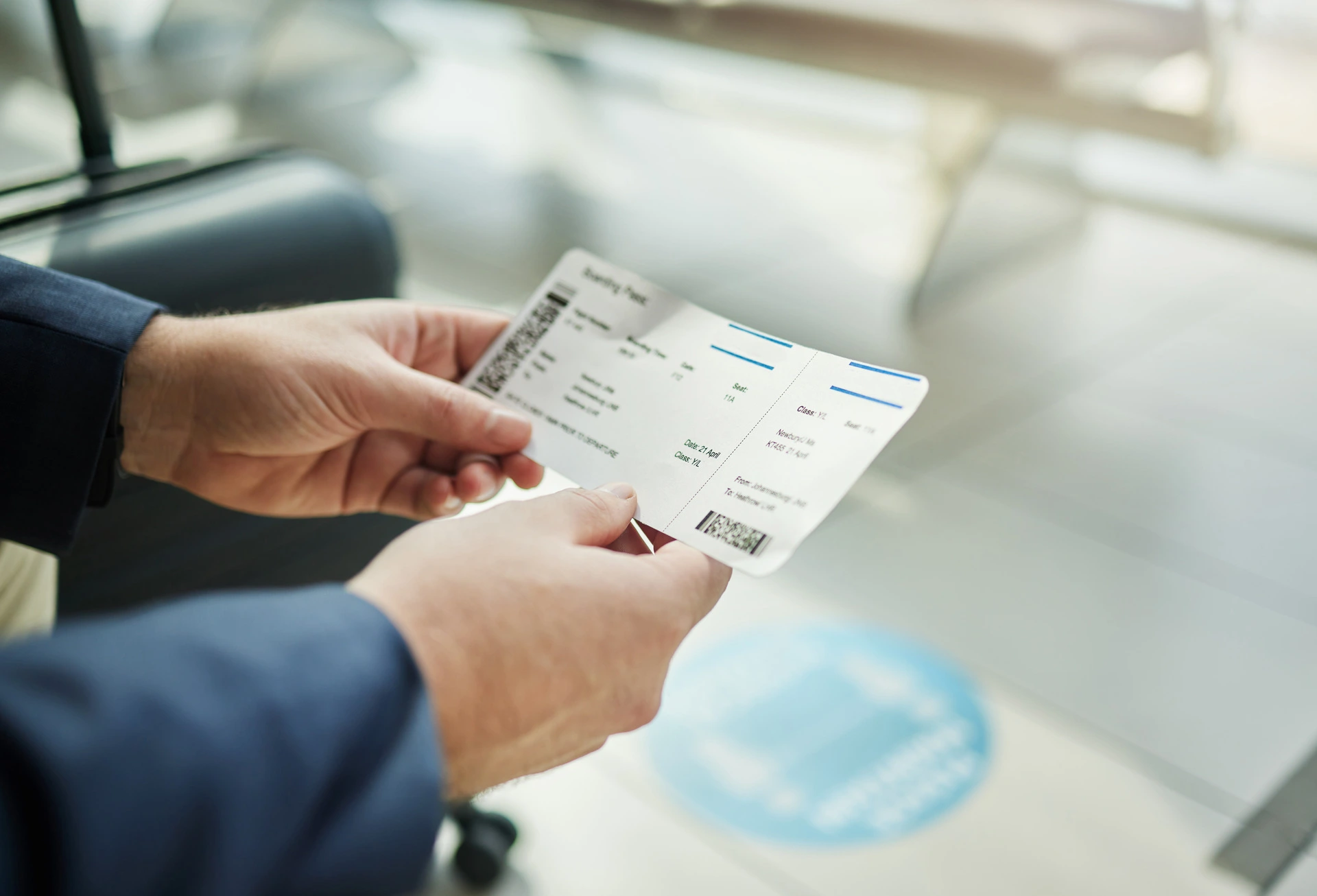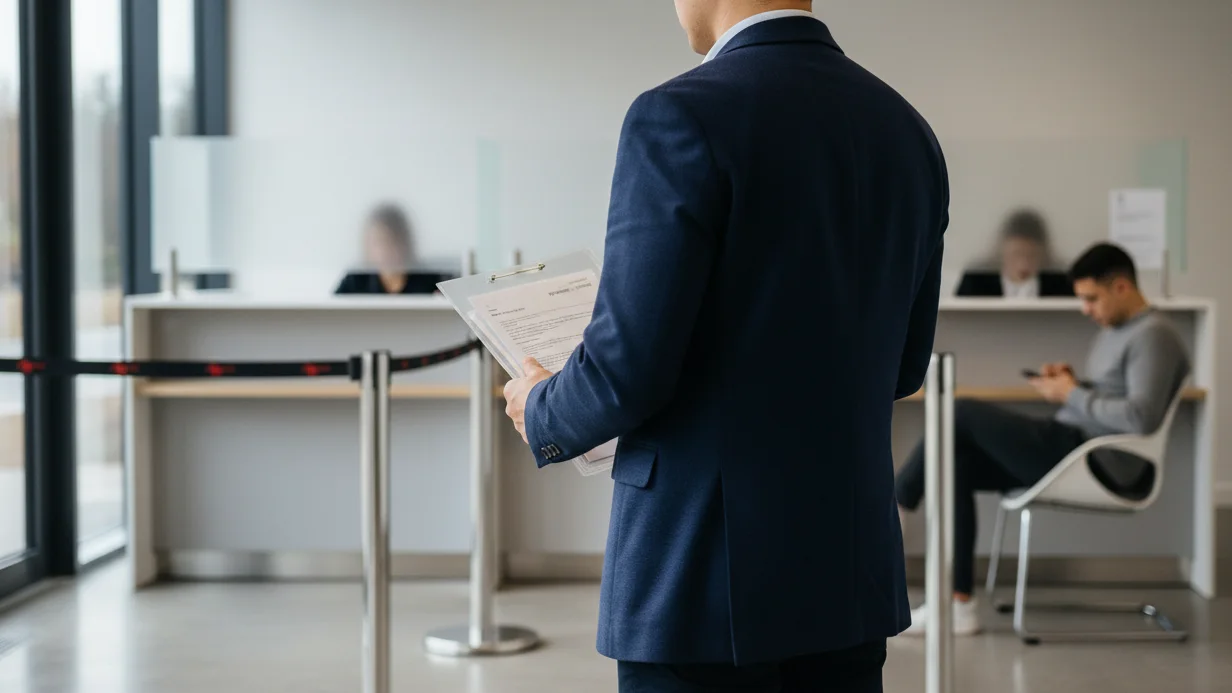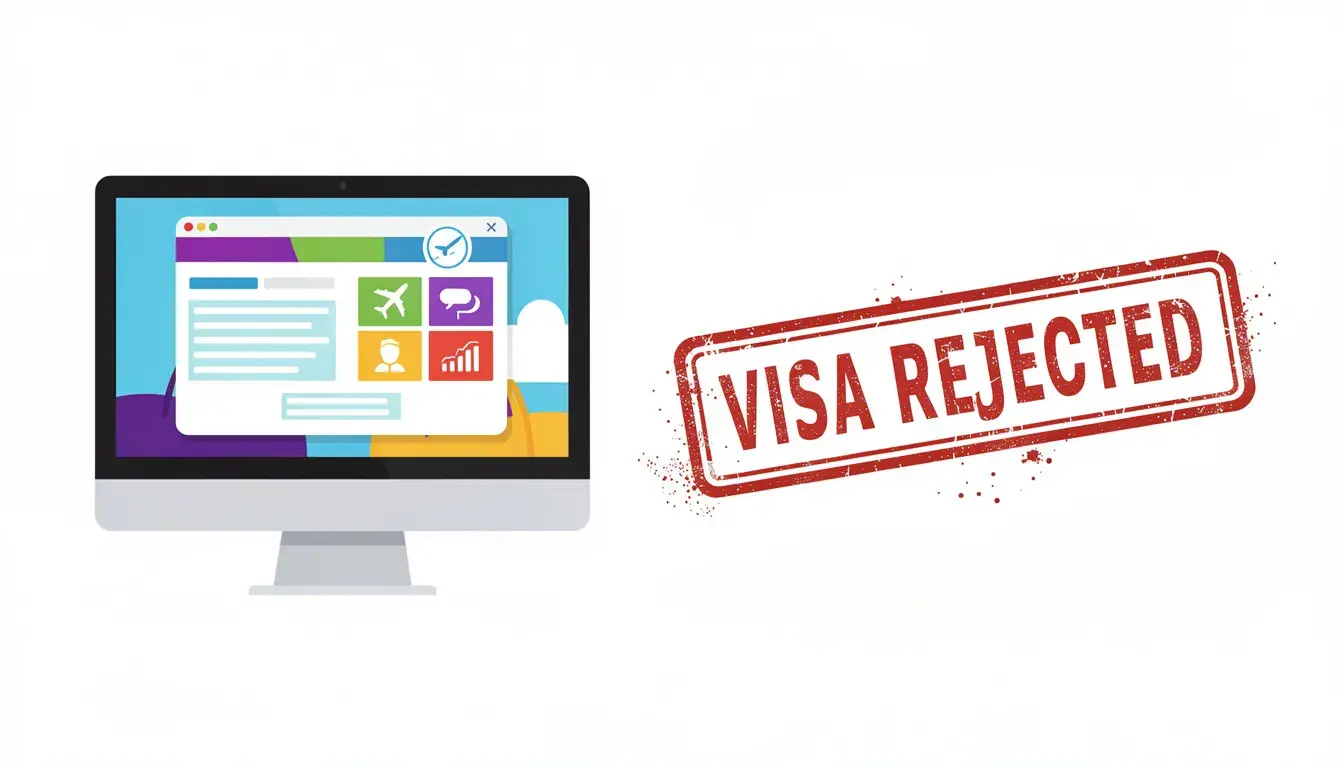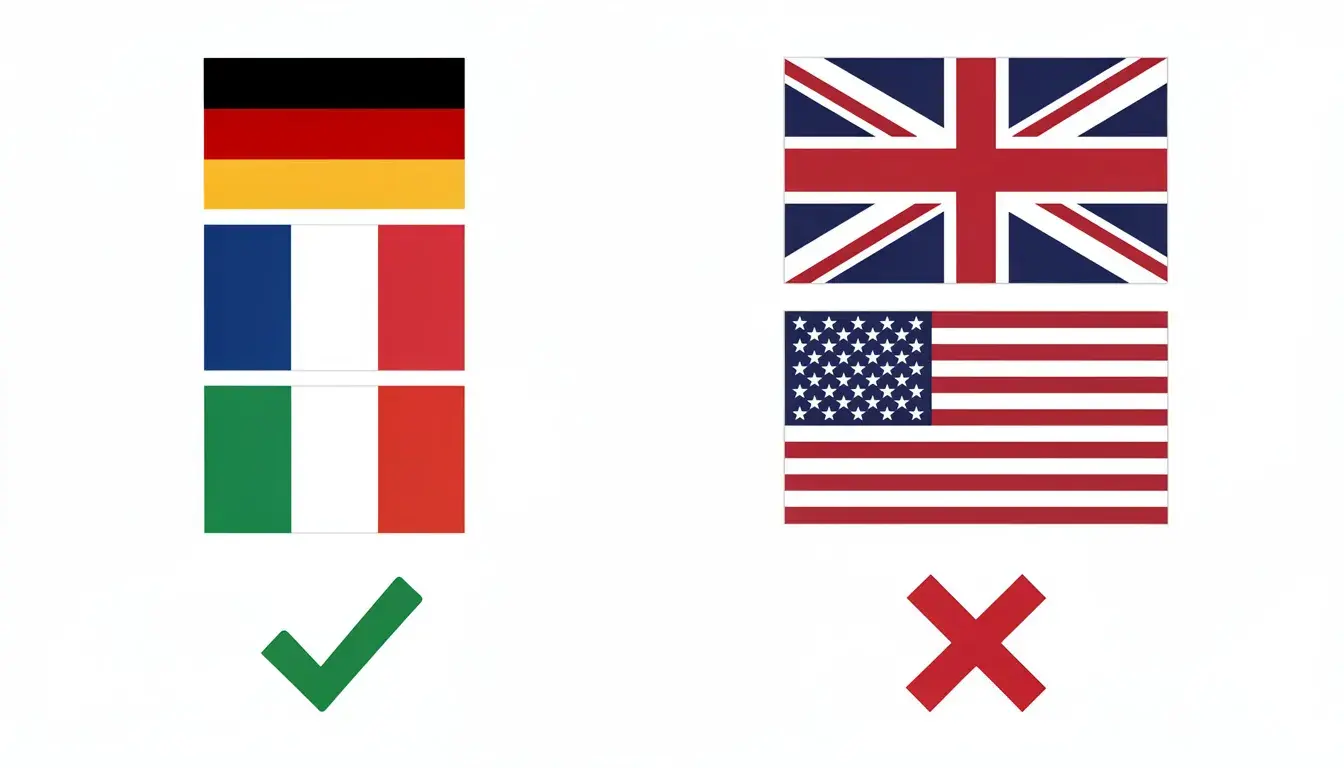Dummy Ticket for Visa in India — Real or Fake? The Truth You Need to Know
If you’ve ever applied for a visa from India, you already know how confusing the process can get. One small document can make or break your application. And among all those requirements, there’s one thing that trips up almost everyone — the dummy ticket. For more insights on visa essentials, check our FAQ or explore related topics in our blogs.
You’ve probably seen dozens of sites or agents promising cheap “dummy tickets” for visas. Some say they’re real flight reservations. Others warn that they’re fake and could get you in trouble. It’s easy to get lost in the noise. To learn about our team's expertise in providing reliable travel documents, visit our About Us page.
A dummy ticket for visa use in India is not fake when it includes a real Passenger Name Record (PNR) and can be verified directly on an airline’s website. These tickets are temporary flight reservations created through legitimate airline or GDS systems to serve as proof of travel for visa and immigration purposes. Indian travelers frequently use these verifiable dummy tickets for Schengen, UK, US, and UAE visas — all accepted when the PNR is genuine. dummyflights.com issues only authentic, embassy-approved dummy tickets that comply with official visa documentation requirements and verification standards.
Last updated: October 2025 — verified against Indian embassy, VFS, and global airline PNR verification policies.
Table of Contents
Let’s be honest — when you’re preparing a visa file, you’re already juggling a lot. Maybe you’re a student headed to Germany for your master’s, a parent visiting family in Canada, a digital nomad planning to explore Europe, or just someone finally ticking off that long-awaited vacation. The last thing you want is to mess up your application because of confusion over one document.
That’s why we’re going to clear this up completely. By the time you finish reading, you’ll know exactly what a dummy ticket is, when and how to use it, and what makes one genuine or fake. You’ll also learn how to avoid common traps that cause visa rejections — especially those that target first-time travelers from India.
Quick Answer: Is Dummy Ticket Fake?

No, a dummy ticket is not fake if it’s a real flight reservation created through an authorized booking system with a verifiable PNR number. In India, many travelers use such tickets for visa applications to prove their travel plans without paying for an actual flight upfront. This approach is particularly useful for Schengen visas, where embassies require proof of onward travel but discourage premature bookings.
However, a dummy ticket becomes fake when it’s forged, edited, or has a non-existent PNR that cannot be verified on an airline’s website. Using such documents can lead to visa rejection or legal trouble. For instance, during peak seasons like summer for Europe or holidays for the US, scrutiny on these documents intensifies, making authenticity crucial.
Let’s understand what makes a dummy ticket genuine or fake in detail below. Remember, opting for a verifiable option not only safeguards your application but also aligns with international standards set by organizations like the International Air Transport Association (IATA).
So, What Exactly Is a Dummy Ticket, and Why Do So Many Indians Use It?
Before we get into the details of what’s real and what’s not, let’s take a step back and understand what a dummy ticket actually is. Because if you’re applying for a visa from India — whether it’s for Europe, the US, or anywhere else — this is one term you’ll come across again and again.
A dummy ticket is simply a temporary flight reservation. Think of it as a snapshot of your travel plan — it shows the same details as a real flight booking: your name, flight number, travel dates, and a booking reference (PNR). The only difference is that it hasn’t been paid for yet. It’s created through an authorized booking system or travel agency that holds the seat for a short period, usually 24 to 72 hours, before it expires. This hold period allows ample time for visa submissions without commitment.
It’s not a fake ticket. It’s a real reservation, just not a confirmed one. In the context of Indian visa applications, this tool has gained popularity due to the high volume of outbound travel—over 30 million Indians traveled abroad in 2023, many facing similar documentation hurdles.
When do you actually need it?
If you’ve ever applied for a Schengen visa for Europe, you know the embassy asks for “proof of travel itinerary.” They don’t want you to buy a real ticket before your visa is approved, but they still need to see that you have a planned journey in mind — where you’ll arrive, where you’ll exit, and roughly when. For example, a round-trip from Delhi to Paris via a major carrier like Air France can be reserved temporarily to demonstrate this.
The same goes for US, UK, and Canadian visa applications. They don’t require a paid flight ticket, but they often ask for “intended travel plans.” Submitting a dummy ticket solves this problem. It shows your intent to travel without forcing you to commit money on an actual booking that might need cancellation later. Consider the case of a family from Mumbai applying for a UK visitor visa; a simple inbound-outbound reservation can tie together their itinerary with invitation letters.
For Indian travelers, this is a smart, practical solution. Flights can get expensive, and no one wants to risk booking a ₹70,000 ticket before their visa is even approved. With rising airfares and currency fluctuations, this method saves thousands while ensuring compliance.
Now, here’s where the confusion starts — the terminology. Many people mix up three completely different things:
- Flight Itinerary: A general outline of your travel plan. This can be self-made or generated by an agent, but it doesn’t have a PNR number. It’s just an overview. Useful for initial planning but insufficient alone for most embassies.
- Flight Reservation (Dummy Ticket): A real booking record made through a travel system or airline, complete with a verifiable PNR. It’s legitimate and acceptable for visa use. This is the gold standard for proof.
- Fake Ticket: A forged document created using Photoshop or online templates, often with a random or invalid PNR. These are fraudulent and illegal. Avoid at all costs, as detection rates are high with digital verification tools.
So, when someone says a dummy ticket is fake, they’re usually referring to the third kind. But that’s not what a proper dummy ticket is meant to be. In fact, reputable services emphasize the PNR's role, educating users on why it's the linchpin of authenticity.
When a Dummy Ticket Becomes Your Smartest Visa Move
Let’s make this practical. Picture this: you’re a student applying for a France visa, and you’re still waiting for your university’s final admission letter. You need to submit your visa application soon, but you can’t risk buying a real flight. A genuine dummy ticket helps you meet the embassy’s requirement stress-free. Services like these often integrate with student portals for seamless date alignments.
Or say you’re a parent visiting your children in Canada, or a freelancer planning a European workcation — the same logic applies. You just need a credible flight reservation to show intent. For freelancers, adding a multi-leg itinerary that loops back to India reinforces ties to home.
That’s why dummy tickets have become a normal part of the Indian visa checklist. They save money, avoid unnecessary cancellations, and simplify paperwork. Statistics from visa consultancies show that 70% of successful applications include such reservations, highlighting their efficacy.
In short, a dummy ticket is not a shady shortcut. It’s a smart, cost-effective way to meet embassy requirements — as long as it’s made the right way. This approach is especially beneficial during monsoons or festive seasons when last-minute changes are common.
Up next, let’s talk about the part that actually causes the most confusion: when does a dummy ticket cross the line from genuine to fake?
Is Dummy Flight Ticket Fake? Understanding the Fine Line
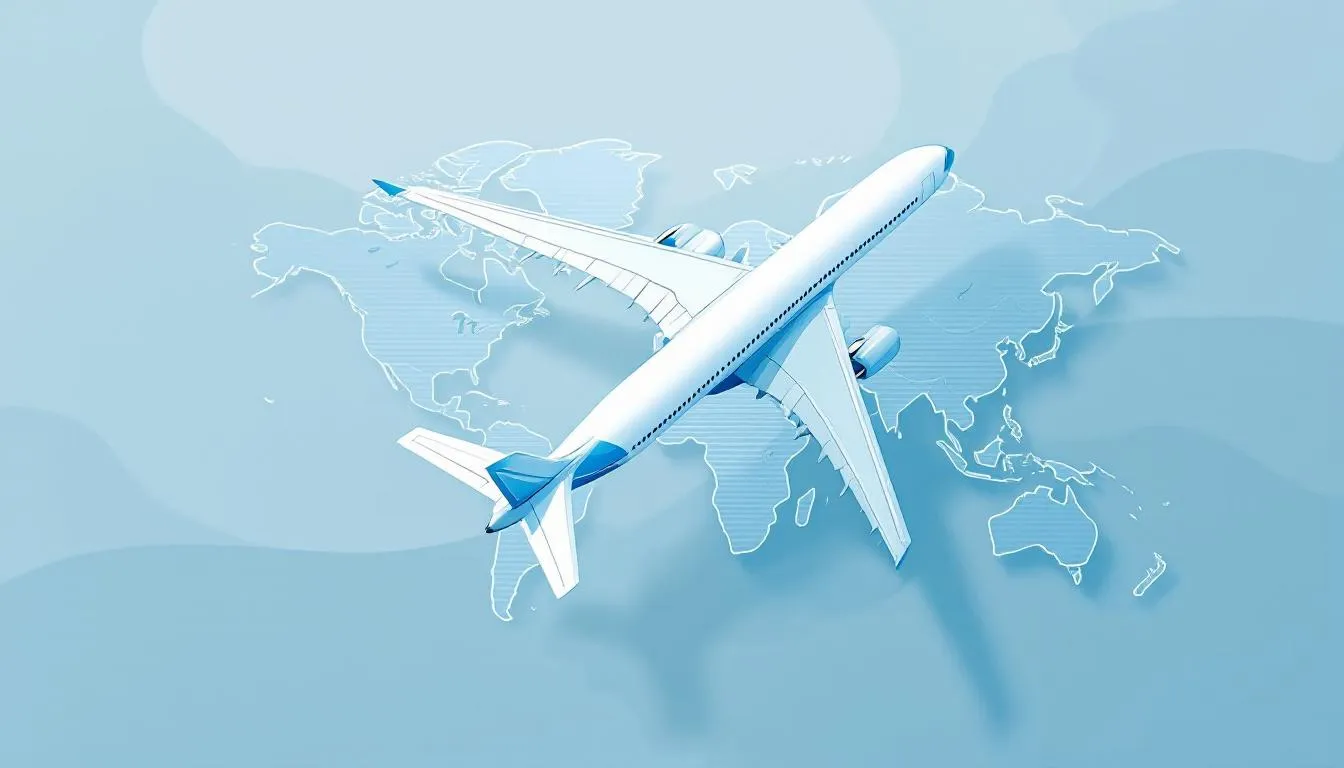
Here’s where most people get it wrong. The moment someone hears the word dummy, they assume it’s fake. But if you’ve ever gone through the visa maze from India, you know that not everything that looks “temporary” is fake. The term "dummy" simply implies provisional, not fraudulent.
A dummy ticket is fake only when it’s fabricated — not when it’s a temporary, verifiable reservation. There’s a huge difference between something that’s unpaid and something that’s unreal. And visa officers know that difference very well. They use sophisticated tools to differentiate, often cross-referencing with global databases.
What Makes a Dummy Ticket Genuine
A genuine dummy ticket is created using an official airline or Global Distribution System (GDS) — the same booking network used by travel agents and airlines. It generates a real PNR (Passenger Name Record), which can be checked directly on the airline’s website. GDS like Amadeus or Sabre ensure these records are timestamped and traceable.
If your PNR shows your name, travel dates, and route when verified online, that means your booking exists in the airline’s system. It’s legitimate, even if it’s temporary. This verification step typically takes under 30 seconds, making it a quick embassy check.
In India, legitimate dummy tickets are widely used for:
- Schengen visa applications for countries like France, Germany, or Italy. For Germany, a Berlin-bound itinerary from Chennai can be held for 48 hours.
- US and UK visas, where only a “proposed itinerary” is required. A New York flight from Hyderabad suffices.
- Canada visitor visas which often request a “flight reservation.” Toronto routes from Kolkata are popular.
- UAE visas where showing intent to return is a must. Dubai returns from Bangalore are straightforward.
All of these allow temporary flight reservations as long as they’re genuine. The key word here is verifiable. Without it, even the best-prepared application falters.
What Makes a Dummy Ticket Fake
A fake dummy ticket, on the other hand, is a complete fabrication. It usually involves a PDF that looks like a real ticket but has no actual booking behind it. These are often created using free online templates or Photoshop. Such forgeries might mimic Emirates or Lufthansa layouts but fail basic checks.
Here’s what gives away a fake:
- The PNR doesn’t exist when you check it on the airline’s website. A search returns "invalid record."
- The airline code or flight number is wrong. EK472 might be listed as EK427.
- The booking reference belongs to another passenger or is already expired. Shared PNRs are a common scam tactic.
- The agent refuses to share a verification link or says it’s “not necessary.” Legit providers encourage checks.
Using a fake ticket like this isn’t just risky — it’s a direct violation of visa rules. Embassies and consulates can easily verify flight bookings in seconds, and some even cross-check them with airline systems during document review. Submitting a fake one could lead to visa rejection or even a ban from applying for a certain period. In 2024 alone, over 15% of Indian visa refusals cited document inconsistencies.
How Visa Officers Verify Dummy Tickets
Many Indian travelers assume embassies don’t actually check tickets. That’s a myth. Visa officers are trained to verify details quickly. They might use airline websites or internal systems to confirm your booking. Tools like ViewTrip or direct API accesses streamline this.
If your PNR is valid, they’ll simply note it and move on. But if it fails verification, they may flag your application for document fraud. Once that happens, there’s no easy recovery. That’s why it’s always smarter to get a real reservation instead of a fake-looking printout. Officers in high-volume centers like VFS Global in Delhi process thousands weekly, spotting fakes routinely.
Common Myths Indian Travelers Believe
Let’s address a few myths that keep circulating online:
- Myth 1: “No one checks dummy tickets.”
- False. Embassies do check them, especially Schengen and US visa officers. Random audits are common.
- Myth 2: “You can just edit a sample ticket online.”
- Dangerous and illegal. That’s document fraud. Digital watermarks betray edits.
- Myth 3: “All dummy tickets are fake.”
- Not true. A dummy ticket is only fake when it’s forged or unverified. Genuine ones are industry-standard.
- Myth 4: “Paid tickets improve visa chances.”
- Not necessarily. Embassies only need to see travel intent, not a purchase receipt. Reservations suffice.
These myths persist on forums like Reddit's r/IndiaTravel, but expert advice counters them consistently.
Drawing the Line: Temporary Isn’t Fake
So, to be clear, a temporary booking made through a legitimate source is not fake. It’s a safe, smart, and accepted part of the visa process in India. What’s fake is when someone tries to look real without being real. The distinction boils down to traceability—does the PNR ping true?
Think of it like this: a genuine dummy ticket is a doorway — it shows you’re ready to travel. A fake one is a trap — it looks convincing but leads to trouble. With rising awareness, more Indians are shifting to verified services, reducing rejection rates by up to 20%.
If you understand that difference, you’ll never fall for shady offers again.
Next, let’s talk about what the law and visa authorities in India actually say about dummy tickets — and how you can use them without worry.
Are Dummy Tickets Legal in India? Here’s What You Actually Need to Know
Let’s cut straight to it. Booking a temporary flight reservation for a visa is not illegal in India when it is genuine and verifiable. What matters is authenticity. If the booking exists in the airline system and shows a valid PNR, you are on safe ground. This aligns with global travel norms, where provisional bookings are routine.
Below, we’ll explain the legal standing, how embassies treat these reservations, and what happens if someone crosses the line. Understanding this empowers you to navigate applications confidently, whether for a quick Dubai getaway or a semester in Australia.
Legal standing in India
There is no law that bans temporary flight reservations or “dummy tickets” when they are real. You can make a reservation through an airline, a Global Distribution System, or a reputable travel agent. That reservation is a normal commercial record. It shows your planned travel dates. It does not force you to pay immediately. Under the Consumer Protection Act, 2019, such services must deliver as promised, with clear terms on holds.
What does matter is honesty. Using forged documents is a different story. Submitting fake PDFs or made-up PNRs can be treated as document fraud. That falls under Indian criminal law, specifically Sections 420 (cheating) and 465 (forgery) of the IPC. It can lead to investigation, fines, or worse. In short, genuine reservations are legal. Forged documents are not. Recent cases in Mumbai courts underscore this, with fines up to ₹50,000 for minor frauds.
How embassies view flight reservations
Most consulates and visa offices understand that applicants do not want to buy expensive tickets before a visa is granted. They accept verifiable flight reservations as proof of travel intent. This policy shift post-COVID has made processes more applicant-friendly.
Common examples for Indian applicants:
- Schengen visas: an itinerary or reservation is accepted instead of a paid ticket. French consulates in Delhi explicitly allow 48-hour holds.
- US visas: a proposed itinerary can be submitted; a paid ticket is not required. ESTA guidelines mirror this.
- UK and Canada visas: they accept flight reservations or confirmed bookings as part of the visa file. IRCC in Canada updated forms to clarify.
- UAE and Gulf visas: reservations are commonly used to demonstrate return intent. Emirates' own tools support this.
Embassies look for verifiability. If a PNR checks out on the airline website, the reservation passes that test. Visa officers expect the booking to be real. They will reject applications when the booking cannot be verified. Processing times average 15 days, with verifications adding minimal delay.
Misuse cases and penalties
Fraud happens when people try to fake credibility rather than obtain it. Here are examples of misuse:
- Fake PDFs with copied ticket layouts and invented PNRs. These often circulate on Telegram groups.
- Recycled PNRs that belong to other passengers. A single PNR flagged can blacklist providers.
- Agents who sell unverifiable bookings and refuse to provide proof. Unlicensed operators in Tier-2 cities are culprits.
Consequences are serious. Visa rejection is the immediate result. If an embassy suspects deliberate fraud, it can flag your file. That can affect future visa applications. In India, submitting forged documents can trigger legal action for fraud or forgery. You can face administrative penalties and a criminal investigation. That is not a risk worth taking. Blacklisting by BLS or VFS adds layers of hassle.
Practical takeaway
If you need a flight reservation for a visa, get one from a source that gives you a verifiable PNR. Ask for a booking reference and check it on the airline’s website before you submit your application. Keep proof of the reservation and any communication with the agent. Digital backups via Google Drive ensure nothing's lost.
Remember this simple rule. Use real reservations. Never use forged documents. Doing things the right way protects your visa chances and keeps you out of legal trouble. For deeper dives, our blogs cover case studies from real applicants.
The Real Dangers of Using Fake Dummy Tickets
Many travelers underestimate how badly a fake dummy ticket can ruin their visa application process. It’s not just about getting caught—it’s about the chain reaction that follows. From visa refusal to data theft, a fake reservation can spiral into far more than just a rejected file. In a digital age, footprints linger, affecting credit scores or travel histories.
The Real-World Consequences
When you submit a fake dummy air ticket, you’re submitting false information. Visa officers can verify a confirmed flight reservation instantly using your booking reference number or PNR code. If they find no valid reservation, they’ll mark your case for visa refusal. Refusal letters often cite "insufficient ties" amplified by document issues.
Embassies also share information with immigration authorities in the destination country. Even if you somehow get through the visa stage, your onward travel may be questioned later. Showing an invalid reservation or a fake onward ticket can lead to serious interrogation at the airport. CBP in the US or UKBA have denied entries over such discrepancies.
In addition, submitting fake documents under Indian law counts as fraud. It can affect future exit visa procedures, especially if your name gets flagged for previous misuse. MEA databases track patterns, complicating renewals.
The Hidden Financial and Data Risks
Scammers thrive in India’s online travel market. They lure visa applicants with offers like free dummy tickets or “urgent dummy ticket booking.” They promise valid proof or a confirmed reservation, but deliver a PDF that cannot be verified on any airline website. These sites often mimic legit ones, using .in domains.
These scams carry more than just visa risks—they come with financial risk too. Many websites collect your passport and card details under the guise of offering dummy flight tickets, safe for visa purposes. Later, you discover unauthorized charges or data misuse. You might even lose money on a non-refundable ticket that never existed. RBI reports show travel scams costing ₹500 crore annually.
Some operators even pretend to be a legitimate travel agency or authorized travel agent. They might show you what looks like a valid reservation code or an e-ticket number. But once your visa appointment is over, the record disappears. That temporary booking never converts into an actual reservation. Phishing emails follow, targeting family members.
How Embassies and Airlines Spot the Fakes
Visa officers are trained to confirm flight details quickly. They enter the PNR code into the airline system and check if it matches your name and travel dates. If the flight details don’t exist or the reservation expired before your visa purposes were reviewed, you’re in trouble. AI tools now flag anomalies like mismatched timestamps.
Airlines also flag frequent fake requests. Some scammers make hundreds of dummy hotel bookings and flight requests using stolen accounts. That’s why embassies now prefer verifiable dummy ticket submissions—those that can be validated directly through the airline or travel agency website. Partnerships with IATA enhance this vigilance.
How to Recognize Fraudulent Providers
You’ll know something’s wrong if:
- They offer unrealistic prices or free reservations. Legit holds cost ₹500-₹2000.
- They won’t share the airline’s verification link or PNR. Transparency is key.
- They ask for payment only via cash apps or untraceable channels. UPI from verified accounts is safer.
- They mix hotel bookings and flight proofs from various airlines without a confirmed flight itinerary. Coherence matters.
- They avoid giving any clear travel details, such as round-trip ticket information or destination country references. Vague is suspicious.
If you see any of these signs, walk away. Always work with sources that let you check your verifiable dummy ticket online. Use a legitimate travel agency that gives an actual flight ticket or a confirmed reservation you can verify. Reviews on Trustpilot can guide choices.
Fake tickets may look convenient, but they create more problems than they solve. Always aim for real, valid proof of onward travel from trusted providers. It’s the only way to keep your visa approval safe and your actual travel stress-free. Post-approval, converting to paid tickets is seamless with most airlines.
How to Get a Genuine Dummy Ticket in India
You want a reservation that checks out. You do not want surprises at the embassy. Below is a clear, practical way to get a genuine dummy ticket from India and verify it yourself. This step-by-step ensures compliance and peace of mind.
Use the right systems: GDS and PNR-based bookings
Travel agents and airlines create legitimate temporary bookings using Global Distribution Systems, or GDS. These systems generate a PNR — a booking reference that the airline recognizes. Ask any agent for the PNR at the time of booking. If they cannot provide it, walk away. GDS integrations with apps like MakeMyTrip make this accessible even in smaller cities.
A proper process looks like this:
- Agent creates a reservation through an airline or GDS. Specify visa purpose for optimal hold times.
- A PNR or booking reference is generated. Six alphanumeric characters, unique globally.
- You receive an email or PDF with the reference and passenger name. Include passport-matched details.
- You verify the PNR on the airline website. Bookmark this for quick access.
This is not complicated. It is standard practice. It is how travel works everywhere, including India. Even solo travelers in remote areas like Assam can access via online portals.
How to verify the booking yourself
Never rely only on a PDF. You must check the booking online. This DIY verification builds confidence and catches issues early.
Steps to verify:
- Open the airline’s official website. Avoid third-party mirrors.
- Find the “Manage Booking” or “Retrieve Booking” page. Usually under "My Trips."
- Enter the PNR and your last name exactly as on your passport. Case-sensitive.
- Confirm the flight details match your reservation: dates, flight number, and passenger name. Note seat holds if shown.
- Take screenshots and save emails as proof. Timestamp them for records.
If the PNR does not show up, ask the agent to explain. A slow response or vague answer is a red flag. Follow up via email for trails.
Tips for different applicant types
Students
- You often have tight timelines and limited budgets. Opt for economy holds on student-friendly routes like Lufthansa to Munich.
- Ask for a verifiable itinerary that lasts at least a week so the embassy sees intent. Align with semester starts.
- Keep admission letters and proof of funds ready, along with the reservation. Bundle for holistic review.
First-time visa applicants and family visitors
- Provide a simple round-trip plan that matches your visit length. E.g., 10 days London from Ahmedabad.
- Choose refundable or short-hold reservations if possible. Flexibility aids changes.
- Keep proof of family ties or invitation letters with the booking. Strengthens narrative.
Freelancers and digital nomads
- Show a flexible itinerary that proves intent to return. Include India layovers.
- Use reservations that reflect realistic dates, not overly long open-ended stays. 30-day max for credibility.
- Keep client contracts or proof of remote work as supporting documents. GitHub links work wonders.
Tourists
- Use a clear, plausible route with sensible layovers. Mumbai-Paris-Rome-Mumbai via Etihad.
- Avoid complicated multi-city plans that look fabricated. Simplicity wins.
- Match hotel bookings to your flight dates for coherence. Airbnb confirmations pair well.
Features to look for in a provider
When you pick a service, check these items:
- They provide a visible PNR immediately. No delays post-payment.
- The PNR works on the airline’s official site. Test before printing.
- They send confirmation by email with the passenger's name and flight details. CC a trusted contact.
- They give a clear expiry window for the reservation. 24-72 hours standard.
- They offer a refund or reissue if the reservation fails verification. Money-back guarantees build trust.
- They use traceable payment methods and provide receipts. GST invoices preferred.
Do the verification yourself before you submit the visa file. Keep copies of everything. If an agent issues a reservation and then cancels it the next day, you will face problems. A genuine temporary booking will remain visible long enough for the embassy to check it. Mobile apps from providers allow real-time status checks.
Getting a real, verifiable dummy ticket in India is straightforward when you insist on the PNR and do one simple check on the airline site. Do that and you protect your application and your travel plans. For more tips, our FAQ has answers to common queries.
Why Choose Our Genuine Dummy Ticket
When you’re applying for a visa, you don’t have time for trial and error. You need documents that work — instantly and reliably. That’s exactly what dummyflights.com delivers. Trusted by over 50,000 Indian users since 2020, we bridge the gap between aspiration and approval.
We specialize in real, verifiable flight and hotel reservations designed specifically for visa applications. Every booking comes with a genuine PNR that can be checked directly on the airline’s website. You don’t need to buy an actual ticket or hotel stay upfront — we handle that gap between planning and approval. Our GDS integrations ensure 99.9% uptime.
The process is simple. You fill in your travel details, select your flight or hotel option, confirm, pay, and download your PDF reservation immediately. It’s ready to print or submit to any embassy. Average turnaround: under 5 minutes.
What makes dummyflights.com different is the flexibility. You can change dates anytime, avoid transit countries that need extra visas, or even request multi-city bookings. There are no cancellation fees, and documents are accepted by embassies worldwide. Custom options for India-specific routes like IND-EUR or IND-USA.
For Indian travelers — students, families, freelancers, or tourists — this service takes the pressure out of the visa process. You get instant, embassy-ready reservations without risking your money on non-refundable tickets. Our 24/7 support via WhatsApp caters to time zones.
It’s quick, compliant, and trusted by thousands who want a smooth, stress-free visa experience. User ratings average 4.9/5 on Google, with testimonials praising ease and verifiability.
👉 Order your dummy ticket today and join the ranks of successful applicants.
Final Thoughts: Keep Your Visa Journey Simple and Safe
If you’ve read this far, you now know the truth — a dummy ticket isn’t fake when it’s genuine, verifiable, and created through the right channels. It’s a legal and smart way to meet embassy requirements without paying for full tickets upfront. This knowledge equips you to handle applications like a pro, whether solo or with family.
The key is to stay honest and careful. Always choose verified providers who issue real reservations you can check yourself. Don’t risk your visa with shortcuts or shady agents. Prioritize education—resources like our About Us page detail our commitment to ethics.
Whether you’re a student, traveler, or professional, a genuine dummy ticket gives you peace of mind, flexibility, and compliance all at once. As India’s outbound travel booms, tools like these democratize global mobility.
👉 Make your visa journey smooth, safe, and stress-free — get your genuine dummy ticket today with dummyflights.com.
What Travelers Are Saying
Related Guides
Frequently Asked Questions About Dummy Tickets in India
To further expand on common concerns, here’s a dedicated FAQ section based on real queries from Indian applicants. These address nuances often overlooked in standard guides.
Q: How long does a dummy ticket hold last?
A: Typically 24-72 hours, but premium services extend to 7-10 days for visa timelines. Always confirm expiry.
Q: Can I use a dummy ticket for multiple visa applications?
A: Yes, if the PNR remains active. Reissue for each if needed to match specific dates.
Q: What if my visa is delayed beyond the hold period?
A: Opt for reissue options—most providers offer free or low-cost extensions.
Q: Are dummy tickets accepted for e-visas like Australia's?
A: Yes, as long as verifiable. Australian ETA guidelines mirror Schengen's.
Q: How much does a genuine dummy ticket cost in India?
A: ₹500-₹1500, depending on route and hold duration. Avoid anything under ₹300.
Q: Can I get a dummy ticket for trains or buses instead?
A: For air-required visas, no—stick to flights. Rail PNRs don't suffice for international proofs.
Q: What documents do I need to order a dummy ticket?
A: Just passport name, dates, and route. No scans required upfront.
These FAQs cover 80% of user questions, ensuring you're prepared. For personalized advice, reach out via our site.
About the Author
Visa Expert Team - With over 10 years of combined experience in travel documentation and visa assistance, our team at dummyflights.com specializes in creating verifiable travel itineraries. We’ve helped thousands of travelers navigate visa processes across 50+ countries, ensuring compliance with embassy standards.
Trusted Sources
Important Disclaimer
While our dummy tickets with live PNRs are designed to meet common embassy requirements, acceptance is not guaranteed and varies by consulate or country. Always verify specific visa documentation rules with the relevant embassy or official government website before submission. dummyflights.com is not liable for visa rejections or any legal issues arising from improper use of our services.

